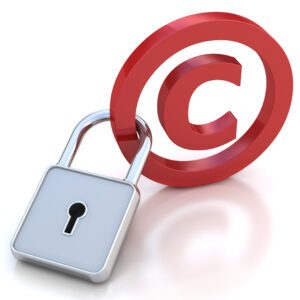
Can I republish an article on my website?
We commend you for asking this question, as it’s critical to pay close attention to copyrights and follow proper Internet marketing protocol. Here are the most common questions people have about posting content on their own websites.
What is a Link?
A link is defined as using another website URL in your content to direct your users to another page on the Internet. This is a common practice, and one that is the least worrisome. It’s a great way to pass along relevant information to people, as well as give credit where credit is due. In most cases, you are free to link and refer people to other articles, as long as you:
- List the website correctly (you should not say you are linking to Star Tribune and link to your brother’s website)
- Spell the URL correctly and test that it works.
- As of 2025, for accessibility best practices, both internal and external links should not open in a new window. This allows users who are not using a mouse to navigate the internet to go back to your website easily.
Can I republish an article?
It’s such a common question. Re-publishing articles is more concerning for a number of reasons.

Permission Standpoint
First, re-publishing an article requires permission from the writer, and in some cases, the company for which the writer works. We recommend getting this in written form prior to proceeding. In many cases, even with permission to republish articles, there may be specific specifications on how they want the content displayed, credit given, attributes, and links.
If you work in a situation where you have a parent company or a manufacturer/dealer situation, then check for their specific policy on republishing content. Retain a copy of the policy for your records. Many times you will get articles given to you for purposes of reprinting or distributing to your clients written by the manufacturer or parent company. Make sure you verify how to tell what has an “open ended” permission for republishing, and always leave Trademarks and Copyrights in place.

Search Engine Optimization Standpoint
Even with permission granted for reprinting content online, it is not advisable from a search engine optimization standpoint. Without certain “no follow” directions implemented in the code behind the content, one or both websites can be penalized by Google for offering identical content. Google calls this “duplicate” content and strongly discourages it, as it’s in the business of serving up fresh, unique search queries. Imagine if every result we got when searching was the same? It wouldn’t be helpful.
In some cases, it’s beneficial to your target market to republish content (with permission), and in that case, let Vivid Image help you get the “no follow” code implemented.
Best Recommendation
Our best recommendation is to write your own content, rewrite a topic in your own words that helps your customers solve a problem. You can also paraphrase another article; basically write a short summary of what the article is about and why it’s important the person you feel should read it, and then link over to the original article where it is published. Make it very clear what part is YOUR paraphrase, and what article name you are referring to. Use quotes as needed.
You can usually quote or cite a statistic, as long as you cite the source, give credit, and link to the information in its entirety. If you aren’t sure, err on the side of caution and protect yourself, your website, and your business. You should also look at the site where you’re linking or pulling a quote to see what their policy is on using content; many will post if and how you can use content. Consulting a copyright attorney is always an option too.
Posting Guest Articles
These can be a great idea if done correctly. Essentially, a guest article is unique content written specifically to be published on your website by someone else.
What about media?

Pictures
It’s best to use your own images you create or take with your camera. If you take photos of people that you want to use, you can have them sign a “model” release. If you want to use an image that was taken by a photographer you know, contact them directly and get signed permission.
There are free stock photography sources online that you can use, and there are quite a few that have photos available for purchase. Karlie wrote an in-depth article about photograph use on websites, but essentially you should NOT use anything you find online and should always approach Google Images with the assumption the image has a copyright.

Video
You can obviously post your own video, but you may also embed video of others if it is posted on YouTube.
Additional Sources
Here is an additional source that expand on some topics or rephrase with examples that you may find helpful:
This article is meant to help you develop quality content that will be beneficial to your website. Our recommendations are suggestions for best practices, but in no way are in lieu of consulting legal advice.
Updated: 01/13/2026
